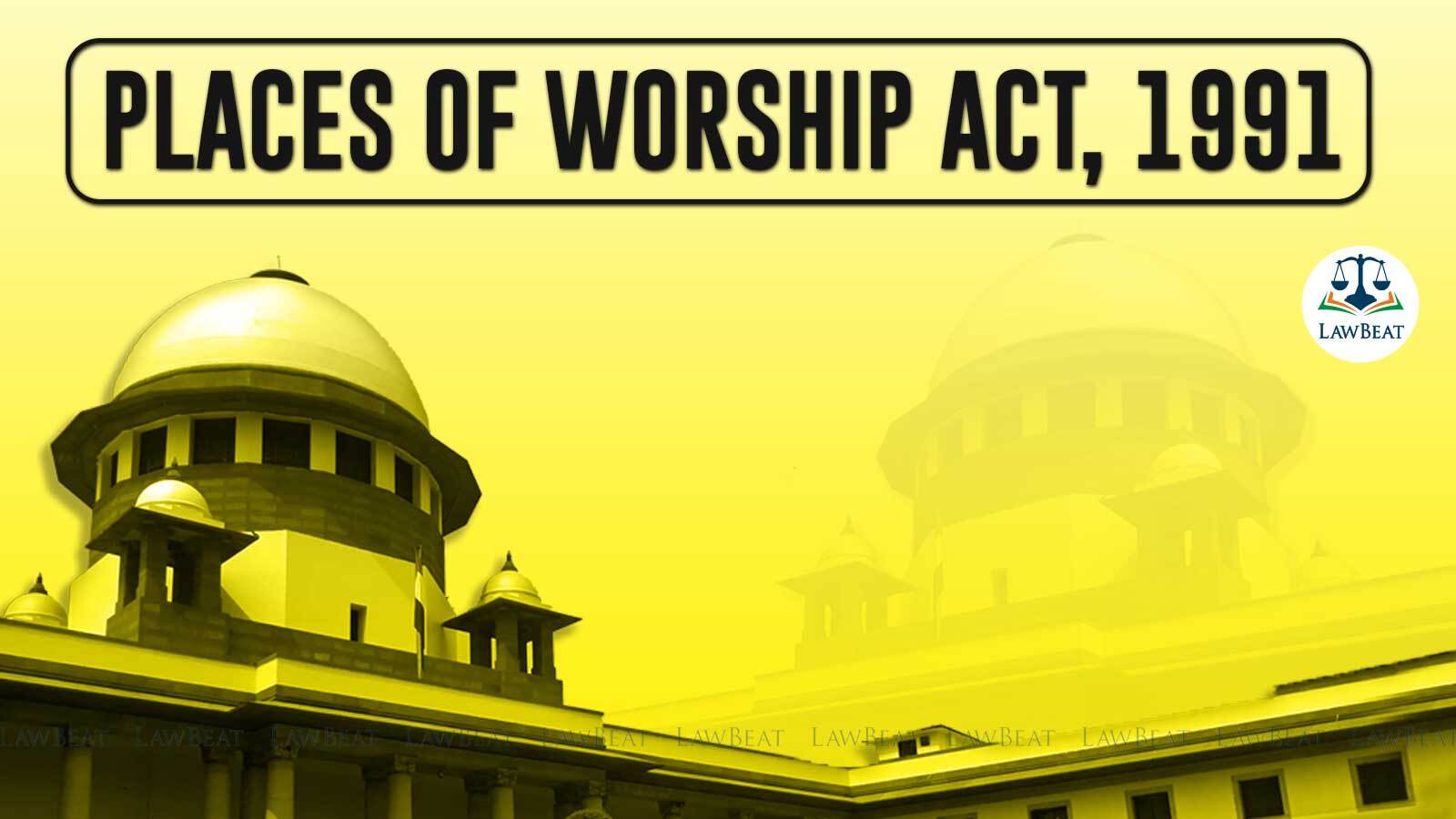Supreme Court Seeks Centre's Response On Plea Challenging Constitutionality of Places Of Worship Act, 1991

The Supreme Court Bench, today sought Centre’s response in the plea challenging the constitutionality of the Places of Worship Act, 1991, and placed the issue before a larger bench.
The plea challenging the provisions of the Places of Worship Act 1991, was taken up by the Court today. A bench of CJI U.U. Lalit, Justice S. Ravindra Bhat and Justice Pamidighantam Sri Narasimha, sought Centre’s response in the plea, and placed the issue before a larger bench.
Dr. Subramanian Swamy, Adv. J Sai Deepak, Ashwini Upadhayay and Advocate Vishnu Jain, were present before the Court. In the arguments Dr. Subramaniam Swamy put forth a prayer stating, that “along with Ram Janmabhoomi, the Kashi Vishwanath issues must also be included for reading down the provisions of Places of Worship Act, 1991. Whereas Sr Adv. Rakesh Dwivedi submitted that reading down will only happen if validity is examined.
Advocate J Sai Deepak stated, “In light of the Ram Janmabhoomi judgment, Section 5 of the Places of Worship Act is a stark violation of Article 14 and of Article 26 because for certain Sampradaya’s Kashi Vishwanath may be more important than Ram Janmabhoomi”.
Whereas Advocate Ejaz Maqbool, appearing for Jamiat Ulema I Hind, while contesting the petition submitted that, “Ayodhya judgment specifically mentions the suitable application of Places of Worship Act, 1991”.
For the background a Supreme Court bench of Justices Chandrachud and Pardiwala had directed the petitioners in July, who challenged the provisions of the Places of Worship Act 1991, to move intervention applications in pleas already pending before the court, challenging the same legislation.
Appearing for one of the petitioners, Rakesh Dwivedi, Sr. Adv, suggested that the fresh petitions can be tagged along with the pending ones. The bench, however, opined that the petitioners can intervene in the pending matter instead of getting the pleas tagged.
Vijay Hansaria, Sr. Adv, argued that the present petitions raise a fresh set of grounds and the petitioners may not be able to raise the additional grounds in the intervention application. Court, at this point, directed that the petitioners will be at liberty to supplement additional grounds in the main petition.
The Supreme Court, heard pleas by Advocate Chandra Shekhar, former Member of Parliament Chintamani Malviya, Swami Jeetendra Saraswatee, Devkinandan Thakurji, and Anil Kabootra.
Malviya's plea challenged the Act on the grounds that "It excludes the birthplace of Lord Rama but includes the birthplace of Lord Krishna, though both are the incarnation of Lord Vishnu, the creator and equally worshiped all over the world."
Chandrashekar's plea stated that religious fundamentalists’ invasion on the land of India was always followed by the destruction of places of worship of eminence and a place of worship of a different religious denomination was constructed or established over the ruins of the earlier structure and thus, each and every place of worship of eminence of Sanatan (Hindu) religion has one or more place of worship of a particular religious denomination in its vicinity.
BJP leader Ashwini Kumar Upadhyay, challenged the Places of Worship Act 1991, before the Supreme Court last year. The Supreme Court issued notice in the same in, March 2021.
In June 2022, Jamait Ulama-I-Hind filed an impleadment application in Ashwini Kumar Upadhyay's plea. The All India Muslim Personal Law Board had moved an application in the same opposing the challenge.
Case title: Batch of petitions
